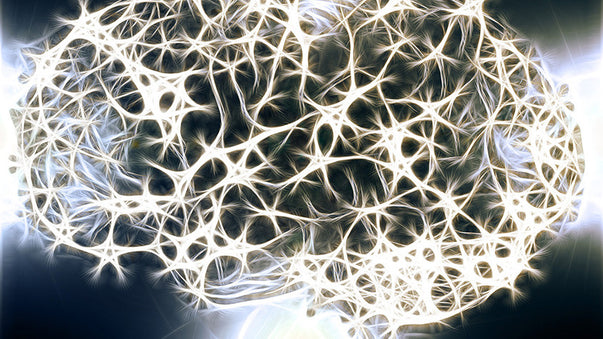Anti-Aging Therapy on the Horizon

Welcome to this new issue of Pulse, your weekly newsletter focused on human enhancement today and tomorrow, brought to you by Thrivous!
Human enhancement is often conflated with life extension. I think there’s more to human enhancement than that, but a longer (and healthier) life is something we all wish for. We should, then, learn from the best: those who actually managed to live longer than 100 years, and stay active and healthy until the end.
Mental Floss has a story about centenarians and supercentenarians (those who live longer than 110 years) with tips for a long and healthy life from the masters themselves. Some of the tips are easy to guess, but others seem counterintuitive in today's health-obsessed climate: olive oil, bacon, and (god forbid) cigars. You don’t have to start eating bacon deep-fried in olive oil and smoke cigars, but bear in mind that some persons who did lived to be supercentenarians.
The lion's share of this week’s human enhancement news headlines goes to the discovery of key molecular pathways and mechanisms for DNA repair, accompanied by the successful treatment of age-related DNA damage in lab mice (see below for the official press release and the scientific paper). “This is the closest we are to a safe and effective anti-aging drug that’s perhaps only three to five years away from being on the market if the trials go well,” said Prof. David Sinclair, who lead the research work. “The cells of the old mice were indistinguishable from the young mice, after just one week of treatment.”
Hoping for operational, efficient anti-aging treatments in only a few years could be a bit optimistic, but all indications are that anti-aging research is making progress. Your best bet is to try and stay as healthy as you can to have a chance at anti-aging therapy when it becomes available. And don’t forget to take care of your spiritual well-being, which improves physical health as well.
Biking and walking keep cells young. Scientists at the Mayo Clinic and other institutions have confirmed that the benefits of exercise extend down to the cellular level, and developed new insights into what type of exercise is most effective, and why. The study results, published in Cell Metabolism, show that high-intensity interval training in aerobic exercises - such as biking and walking - causes cells to make more proteins and reduces aging at the cellular level.
Spiritual retreats boost neurotransmitters in the brain. Researchers at Thomas Jefferson University have found that participating in spiritual, meditative and religious retreats induces chemical changes in the brain, which promote positive emotional experiences and often result in improved physical health, and reduced tension and fatigue. The study, published in Religion, Brain & Behavior, followed participants in a week-long Christian spiritual retreat. Brain scans performed after the retreat indicated increased activity of dopamine, a neurotransmitter that mediates cognition, emotion and movement, and serotonin, involved in emotional regulation and mood. A survey revealed increased well-being and powerful, positive emotional experiences.
Thin neuronal membranes are especially vulnerable to Alzheimer’s attack. Scientists at the University of Michigan have discovered that the cell membranes of neurons are particularly vulnerable to a protein found in brains of people with Alzheimer's disease. The research results, published in The Journal of Biological Chemistry, show that thin neuronal membranes give access points to amyloid-beta, a protein that builds up in the brains of Alzheimer's patients, allowing the protein to kill neurons and reduce the patient's ability to form and retain memory. According to the researchers, the findings could be significant in the development of compounds to treat Alzheimer’s disease.
Aging-related DNA damage reduced in mice, anti-aging therapies on the horizon. Researchers at Harvard Medical School and other institutions have identified a critical point in a molecular chain reaction responsible for cellular DNA repair, cell degeneration and aging. The research results, published in Science, indicate that a molecule called NAD, already known for its role as a controller of cell-damaging oxidation, is also a key regulator of protein-to-protein interactions in DNA repair. The scientists also experimented with lab mice and were able to show that treatment with the NAD precursor NMN mitigates DNA damage from aging and radiation exposure. NMN makes up half of a NAD molecule, but is still small enough to penetrate a cell membrane. Once inside the cell, NMN binds to another NMN molecule to form NAD. “Our results unveil a key mechanism in cellular degeneration and aging but beyond that they point to a therapeutic avenue to halt and reverse age-related and radiation-induced DNA damage,” is the sober but visionary statement of team leader Prof. David Sinclair.
A simple, effective method for high-resolution brain imaging. Scientists at the University of Utah have developed a minimally invasive, inexpensive way to take high-resolution pictures of the brain. By inserting a needle about a quarter-millimeter in diameter into the brain of genetically modified lab mice, the researchers could shine laser light through the needle, illuminate specific brain cells, and reconstruct clear high-resolution images of deep brain tissues from the recorded data. The research, published in Scientific Reports, was aimed at developing techniques to study fundamental neuroscience in the mouse brain, but according to the researchers the same techniques could be adapted to human patients.
More Articles
Don't miss a beat! In our Pulse Newsletter, Thrivous curates the most important news on health science and human enhancement, so you can stay informed without wasting time on hype and trivia. It's part of the free Thrivous newsletter. Subscribe now to receive email about human enhancement, nootropics, and geroprotectors, as well as company news and deals.
Read more articles at Thrivous, the human enhancement company. You can browse recent articles in Thrivous Views. See other Pulse Newsletter articles. Or check out an article below.
-
Neural Lace and Programmable Cells
Welcome to this new issue of Pulse, your weekly newsletter focused on human enhancement today and tomorrow, brought to you ...
-
Therapy or Enhancement?
Welcome to this new issue of Pulse, your weekly newsletter focused on human enhancement today and tomorrow, brought to you ...


